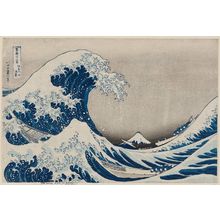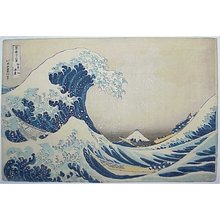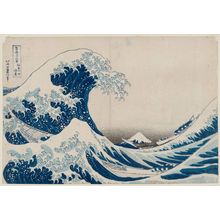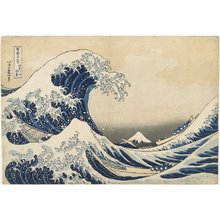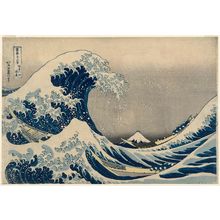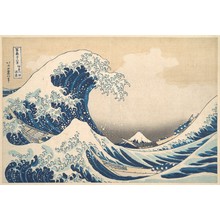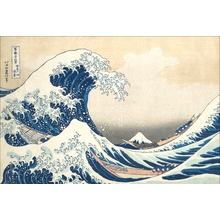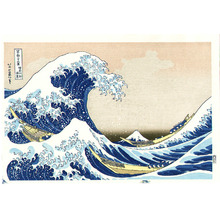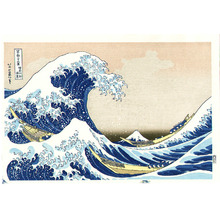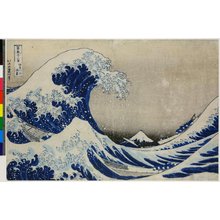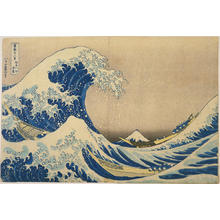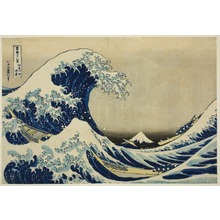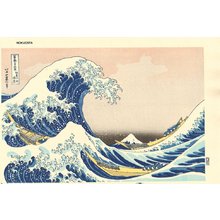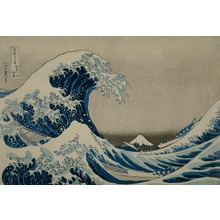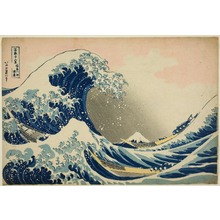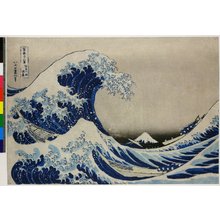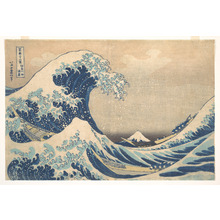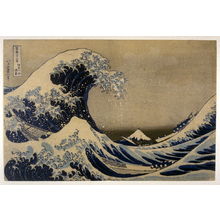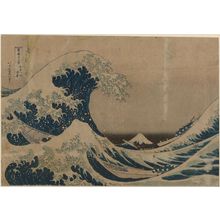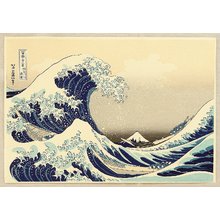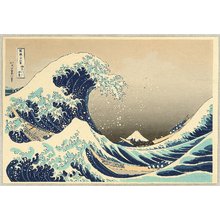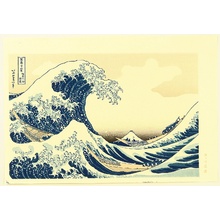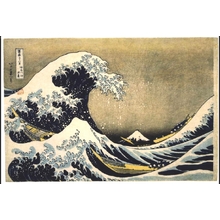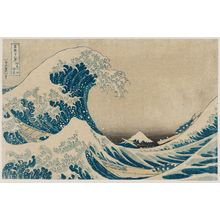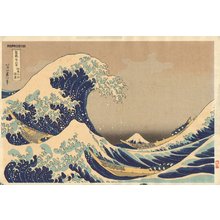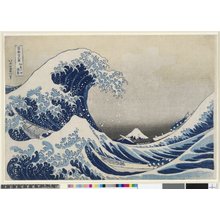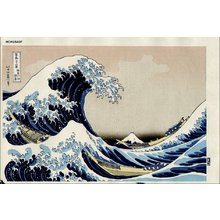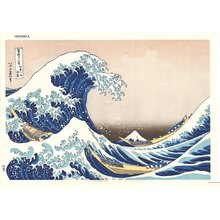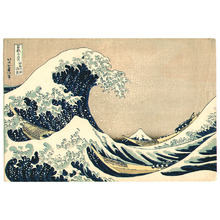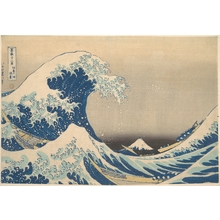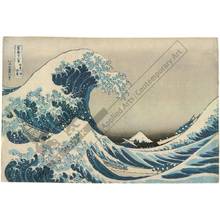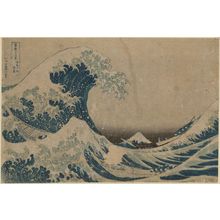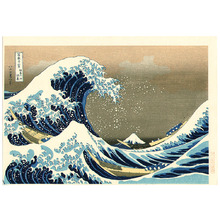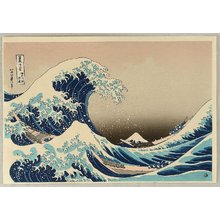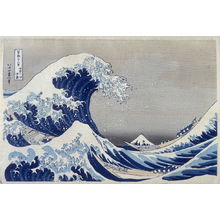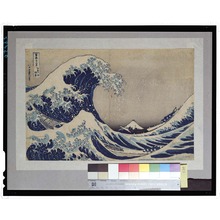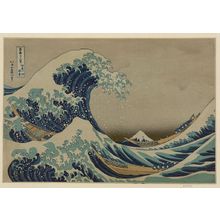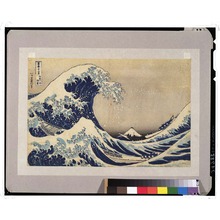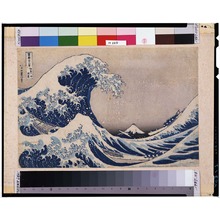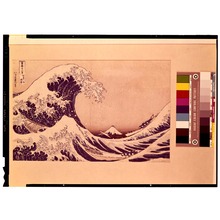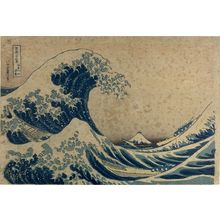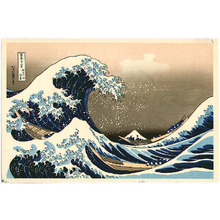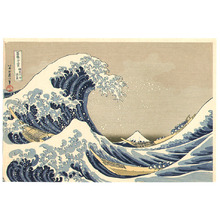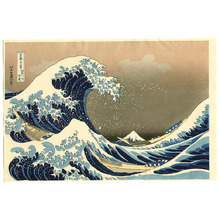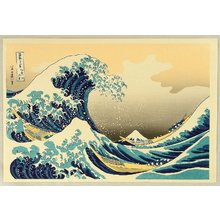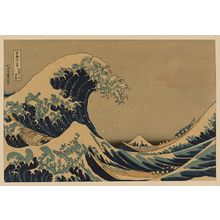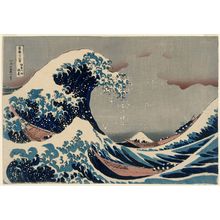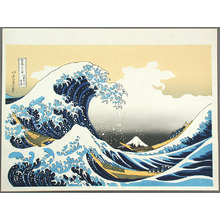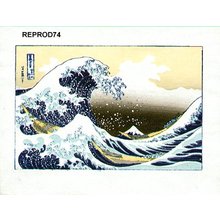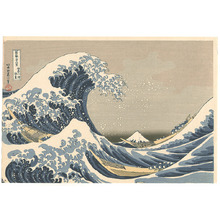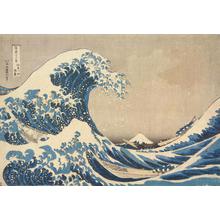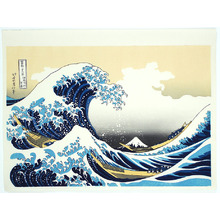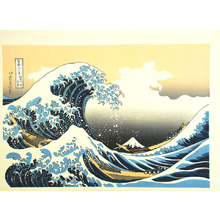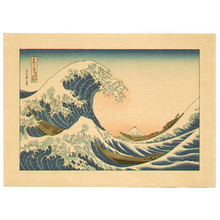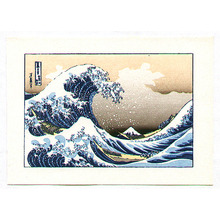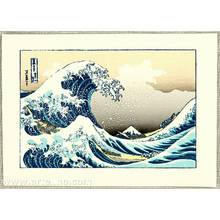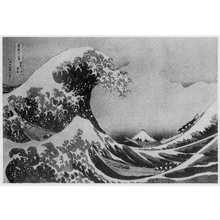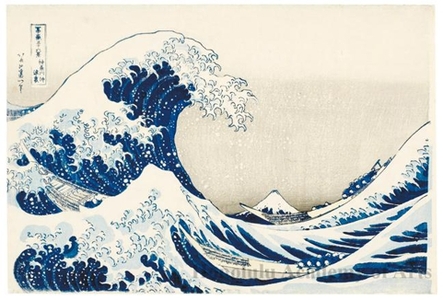Japanese Print "The Great Wave off Kanagawa" by Katsushika Hokusai
Artist:Katsushika Hokusai
Title:The Great Wave off Kanagawa
Date:c. 1830 - 1834
Details:More information...
Source:Honolulu Museum of Art
Browse all 5,476 prints...
Description:
Together with Thunderstorm Beneath the Summit (cat.8) and Mount Fuji at Dawn (also known as Red Fuji, cat. 7), this print, better known by its short title, Great Wave, is one of the three best-loved compositions in Hokusai’s Fuji series. Nature’s enormous power is vividly portrayed in the great wave and ingenious composition as both profoundly beautiful and chillingly threatening. It is no wonder that the Japanese as well as people everywhere recognize this print as a world-class masterpiece. The print depicts three boats tossed by the wind and gigantic, towering waves. The boats somehow stay afloat, their crew crouching in the scuppers. Snow falls against the gray sky and over the blue waves. Snow-covered Mount Fuji rises serenely in the distance, far from the turmoil of the breaking waves. Hokusai contracts the power of a merciless nature and the helpless humans subjected to it. Hokusai, who worshiped Mount Fuji, made numerous studies of it using Western perspective in some, a technique he learned from Dutch prints (see, for example, cat. 9, 27, 36 and 42). Finding the pure Western style unsatisfactory here, he adapted it to traditional Japanese style. He placed the horizon exceedingly low. At the same time, he used elements of Japanese decorative style: the reduction of details to only three elements, the waves, boats, and mountain; the extremely close foreground that places the viewer right before the great waves; and the powerful lines that emphasize the forms of these enormous breakers, which seem to spread their tentacles as if to seize and consume everything in their path. The simple color scheme is limited to white and two tones of berorin blue, gray, and brown. As in all ukiyo-e prints, the icy crests of the waves and the snow are reserved areas showing the uninked paper. The key-block was printed in blue. (The Asian Art Museum of San Francisco, HOKUSAI AND HIROSHIGE – Great Japanese Prints from the James A. Michener Collection, Honolulu Academy of Arts: The Asian Art Museum of San Francisco, 1998 Page 55. Cat. 6) ************************* Together with Thunderstorm Beneath the Summit and Mount Fuji in Clear Weather (also known as Red Fuji ), this print, better known by the abbreviated title Great Wave, is one of the three best-known designs in Hokusai’s Fuji series, and is an iconic emblem of Japanese art. The massive wave menaces three vulnerable boats with cowering fishermen. In the distance looms Mount Fuji; its snowcapped form resembles the white foaming waves, while its stillness stands in striking contrast to their violent movement. The dynamic composition creates a tension between human frailty and the power of nature. Humanity seems humble and insignificant when juxtaposed against the powerful and destructive natural forces represented by the wave. The print makes use of Western perspective, with which Hokusai had, by this time, been experimenting. The French composer Claude Debussy (1862-1918) was so inspired by this design that in 1905 he composed the groundbreaking La Mer (The Sea) to honor it. The first edition of the score had (at the composer’s request) a stylized detail of Hokusai’s print on the cover. “Hokusai’s Summit: Thirty-six Views of Mount Fuji” (09/24/2009-01/06/2010) ******************************
Similar Prints
